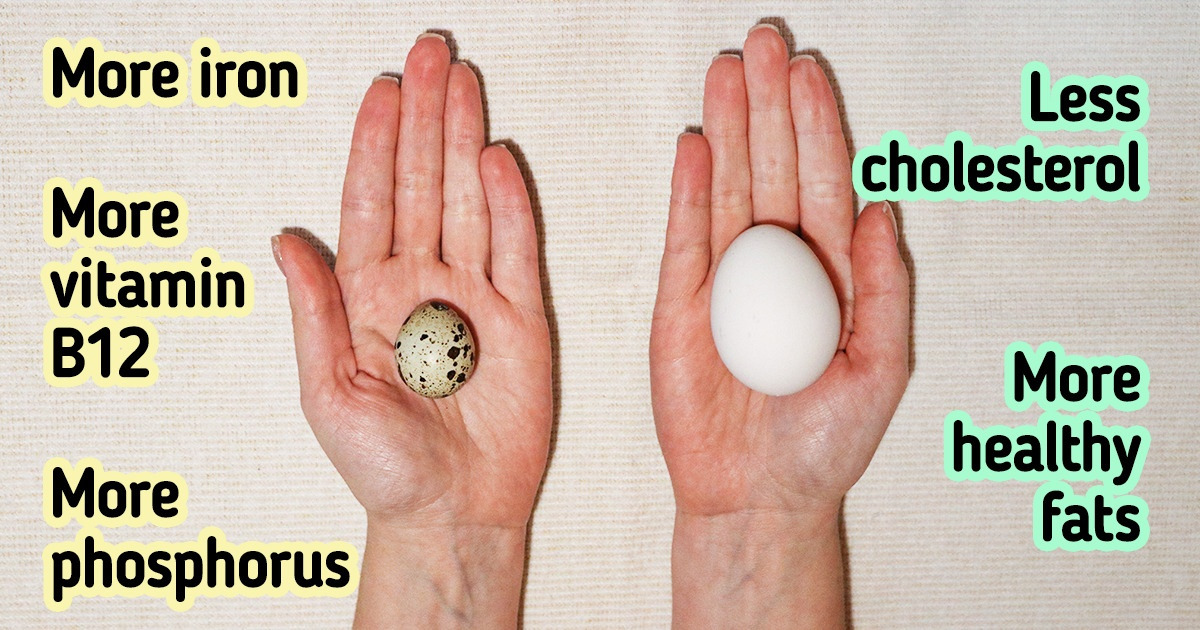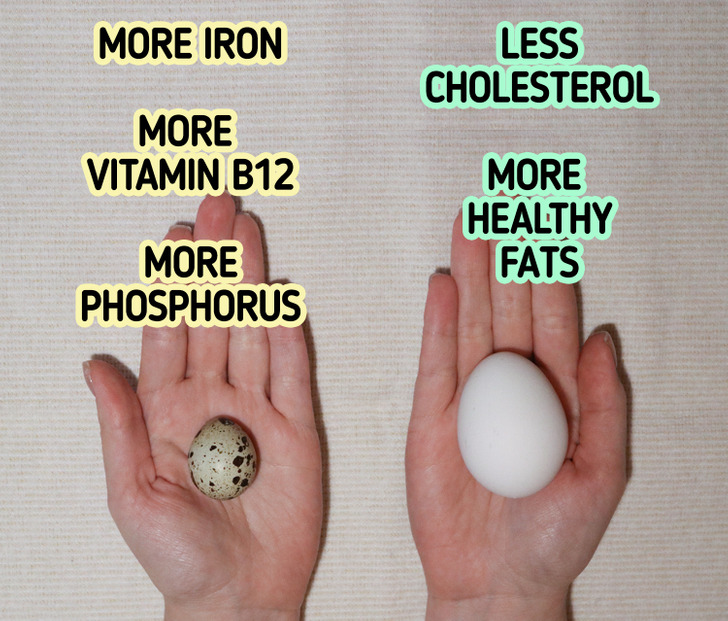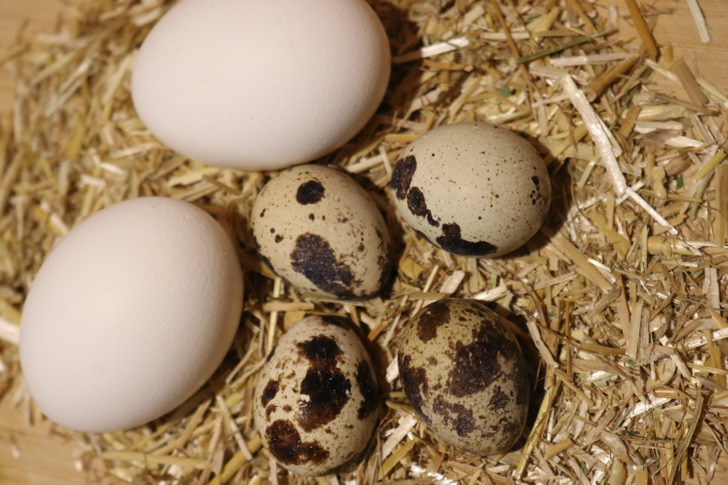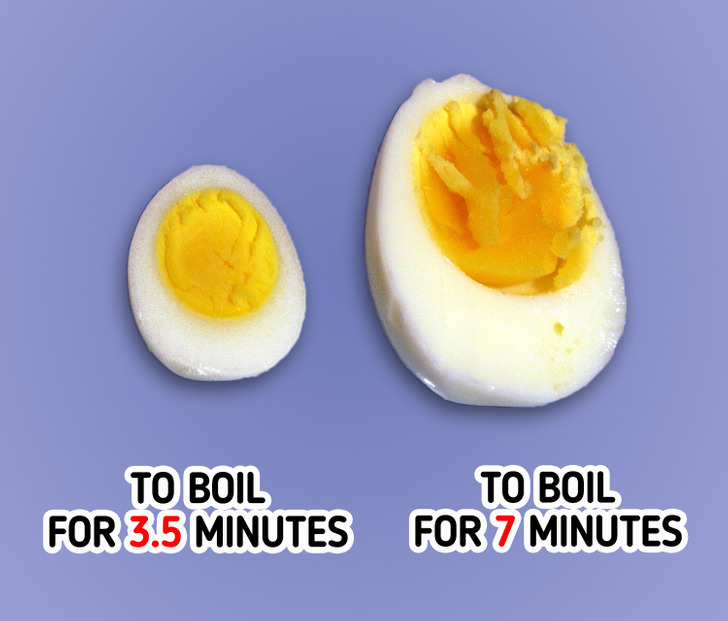How Quail Eggs Are Different From Chicken Eggs, and How to Cook Them Correctly

Quail eggs are considered a delicacy in many countries of the world. Even though they are similar to chicken eggs in taste, the nutritional value and ways of cooking quail eggs and chicken eggs are different.
At 5-Minute Crafts, we decided to figure out the differences between quail eggs and chicken eggs.
Healthy benefits

The main difference between quail eggs and chicken eggs is their nutritional value. Quail eggs have almost 2 times more iron than chicken eggs, are more phosphorus, and have more vitamin B12, calcium, and zinc. They are more filling than chicken eggs because their nutritional value is about 160 calories. However, quail eggs contain a lot of cholesterol, which is especially important to know for those who want to monitor their consumption. 100 g of quail eggs contain 472 mg more cholesterol than 100 g of chicken eggs. Also, chicken eggs contain more healthy fats.
Taste difference

Chicken eggs and quail eggs are quite similar in taste. But due to the fact that quail eggs have more yolk than egg white, the texture and consistency of cooked eggs are different. Quail eggs are more tender and creamy. And if you use quail eggs in baking, the dough will be thicker.
The different ways of cooking them

Many people think that quail eggs should be boiled the same way as chicken eggs, but this is wrong. After all, they are much smaller in size, which means that they need to be cooked a little differently.
Due to the fact that these eggs are very small, they can be boiled in a frying pan as long as they are completely covered with water. To prevent the shell from cracking, it’s better not to put the eggs into cold water. Add quail eggs when the water is about to boil. The cooking time is as follows:
- Soft-boiled eggs, 2 minutes
- Medium-boiled eggs, 3 minutes
- Hard-boiled eggs, 3.5 minutes
For comparison, it takes 7 minutes to hard-boil a chicken egg.